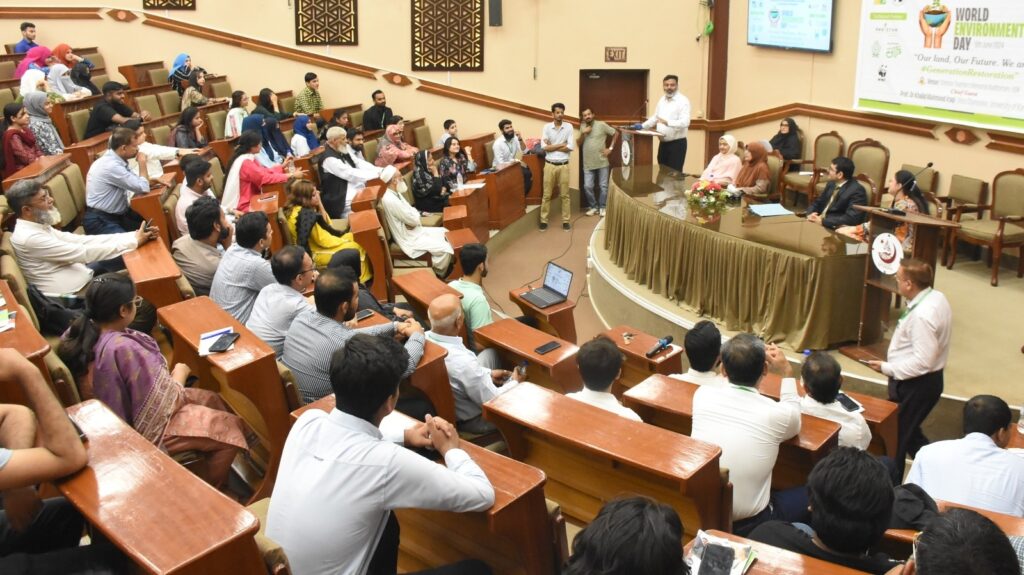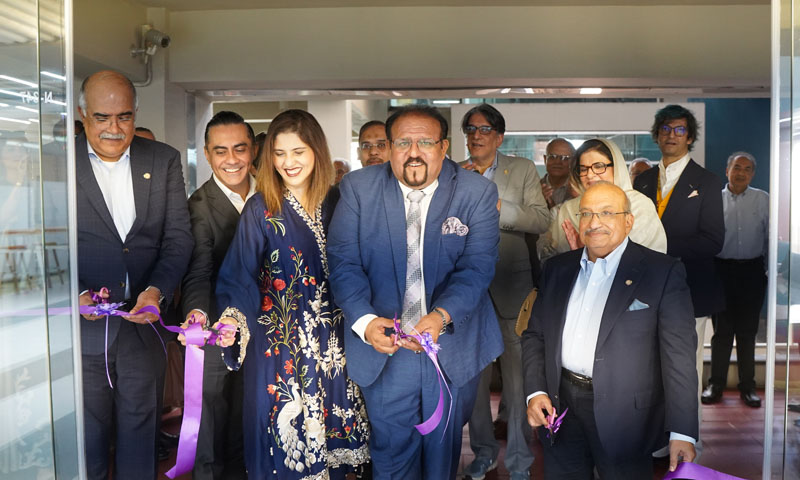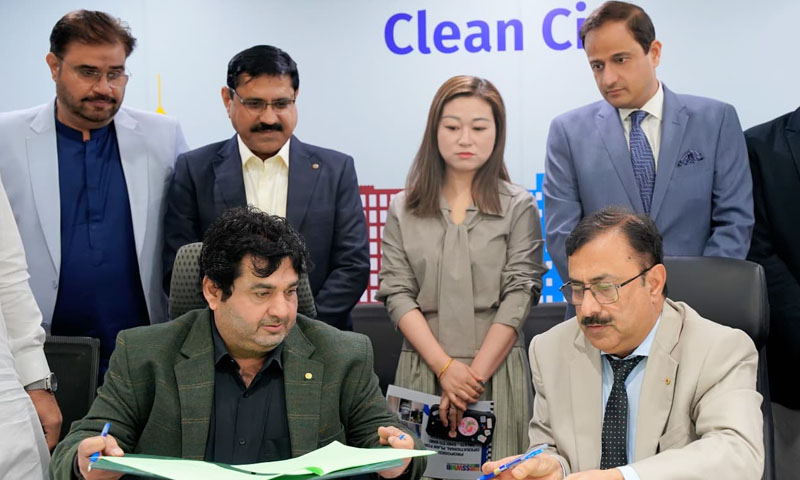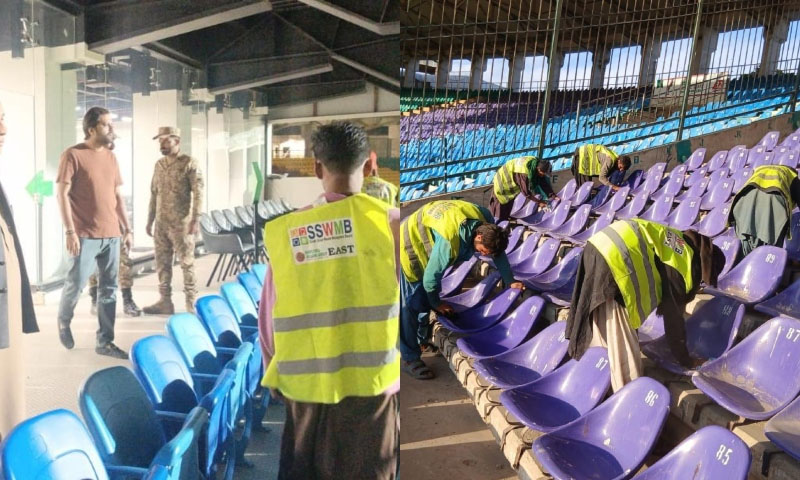- Web Desk
- Jan 12, 2026
KU seminar calls for global action on land restoration for better future
-

- Web Desk
- Jun 07, 2024

This is so unfortunate that the country has very limited resources and it is facing many challenges one of which is the rapid increase in its population. There is no doubt that we cannot achieve our desired goals without addressing the alarming growth in the population.
As the majority of the public does not care and consider the civic sense they are directly and indirectly involved in creating pollution and environmental hazard. The whole world especially Pakistan has been badly affected by climate change. But, tragically we are continuously ignoring the issues of global warming, and climate change and labeling it as western propaganda. The whole nation is suffering the consequences of the carelessness and non-seriousness of society and policymakers.
These views were expressed by the Vice Chancellor of the University of Karachi Professor Dr Khalid Mahmood Iraqi while addressing the seminar related to World Environment Day. The KU Institute of Environmental Studies organized the event “Our Land, Our Future” at the KU Chinese Teachers’ Memorial Auditorium on Wednesday.
He observed that Karachi is not only a megacity, it also become a cemented city, and that is why people are suffering from various problems and diseases. He said that we cannot protect our environmental surroundings without a proper system.
He mentioned that Pakistanis always put trash in the bin while they are out of this country but never do the same when they are in their motherland. He said that countries like India, Malaysia, Indonesia, and others have somehow controlled the rapid population growth and now progressing in the right direction.
“At the present rate of development and economic growth, we are rapidly depleting the natural resources base on which man’s existence depends. For sustainable growth, we need to look into it objectively.”
Earlier, the KU Director IES Dr Muhammad Farrakh Nawaz said that two billion tons of solid waste and 380 trillion liters of wastewater are generated worldwide annually. He sensitized the audience that we have to conduct advanced research to find sustainable solutions to this rising problem.
He mentioned that since industrial development, our environment is continuously getting polluted and now 99 percent of the world’s population lives in places where the air is polluted. According to WHO standards, air pollution in Karachi is twenty times higher than the permissible limit. He shared that Karachi generates 1200 tons of solid waste and 450 million gallons of wastewater daily which is directly impacting the environment and human health.
Dr Nawaz informed the audience that as the balance of the ecosystem is destroyed, the trends of global warming and climate change are more visible. The glaciers are melting and sea level is on the rise and many species of animals and plants are becoming extinct at a very high rate.
On this occasion, a well-known geologist, meritorious Professor Dr Jameel Hasan Kazmi highlighted the potential use of remote sensing (RS) and GIS techniques in the assessment of degradation, rehabilitation, and reclamation of degraded lands.
During his address, he presented several case studies and emphasized that if RS and GIS technologies were adapted by decision-makers, it would provide more resilience to Pakistani farmers to wrestle with desertification and droughts.
He shared that about 30 percent of the agricultural land is being lost in Sindh. The ecosystem and biodiversity are being destroyed due to plantations of imported plants. Conocarpus, a widely planted plant in the country and especially in Sindh, has spread destruction across the country. A sapling takes about four to eight years to grow into a tree and we should not waste time and take serious measures to protect our ecosystem, forests, wetlands, rivers, mountains, wildlife, and biodiversity.
The KU Dean of Faculty of Science Professor Dr Mussarat Jahan Yousaf spoke about several available solutions to reduce environmental waste and convert that waste into useful products. She observed that due to the rapidly growing population, we are facing food shortages and environmental changes regularly. She urged to take practical steps to deal with the challenges of climate change.
The KU Secretary Landscape and Gardening Council Dr Waqar Ahmad presented the campus’s plantation and biodiversity policy. He said that we should play our role to protect and establish the natural environment.
A distinguished plant ecologist Rafi ul Haq said that almost 10 percent of the mangrove areas were lost during the last decade in Pakistan. He also narrated the success story of mangrove rehabilitation in Pakistan. The Coordinator of Click Project Muhammad Masood Alam highlighted the issues of environmental degradation like climate change, deforestation, biodiversity loss, global warming, and pollution in global and Karachi contexts. He highlighted how Karachi is being affected by these issues and which actions are needed to combat these issues.
The deans, directors, chairpersons, resource persons, faculty members, students, and representatives of several industries NGOs, and other organizations participated in this event. The event was organized in collaboration with Martin Dow, Soorty Enterprises, Islamic Relief, RajBy, AE enterprises, Multinational Export Bureau, MapCarto, Liberty, ORIC, SEPA, FEROZAN, WWF, VERTEX and started with a plantation activity at the KU Institute of Environmental Studies.




